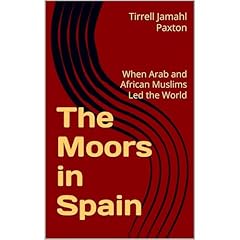
The Ornament of the World
How Muslims, Jews, and Christians Created a Culture of Tolerance in Medieval Spain
No se pudo agregar al carrito
Add to Cart failed.
Error al Agregar a Lista de Deseos.
Error al eliminar de la lista de deseos.
Error al añadir a tu biblioteca
Error al seguir el podcast
Error al dejar de seguir el podcast
 Exclusivo para miembros Prime: ¿Nuevo en Audible? Obtén 2 audiolibros gratis con tu prueba.
Exclusivo para miembros Prime: ¿Nuevo en Audible? Obtén 2 audiolibros gratis con tu prueba.Compra ahora por $20.56
-
Narrado por:
-
Tanya Eby
Widely hailed as a revelation of a "lost" golden age, this history brings to vivid life the rich and thriving culture of medieval Spain, where, for more than seven centuries, Muslims, Jews, and Christians lived together in an atmosphere of tolerance, and literature, science, and the arts flourished.
©2002 María Rosa Menocal (P)2017 TantorLos oyentes también disfrutaron:




















Featured Article: Travel to the Middle Ages with These Audiobooks and Podcasts
The Medieval Era, the tumultuous centuries from the fall of the Roman Empire to the advent of the Enlightenment, is one of the most alluring and intriguing periods of human history. Ready to travel back in time? Check out these audiobooks and podcasts, which cover everything from Icelandic sagas and Medieval murder to the queens of Medieval England and the scientific advancements of the Arab World.
Las personas que vieron esto también vieron:


















Barely comprehensible
Se ha producido un error. Vuelve a intentarlo dentro de unos minutos.
She pronounces it Izlum.
Se ha producido un error. Vuelve a intentarlo dentro de unos minutos.
Excellent Book
Se ha producido un error. Vuelve a intentarlo dentro de unos minutos.
Needs to be rewritten
Se ha producido un error. Vuelve a intentarlo dentro de unos minutos.
Most relevant to today’s global state of affairs.
Se ha producido un error. Vuelve a intentarlo dentro de unos minutos.



